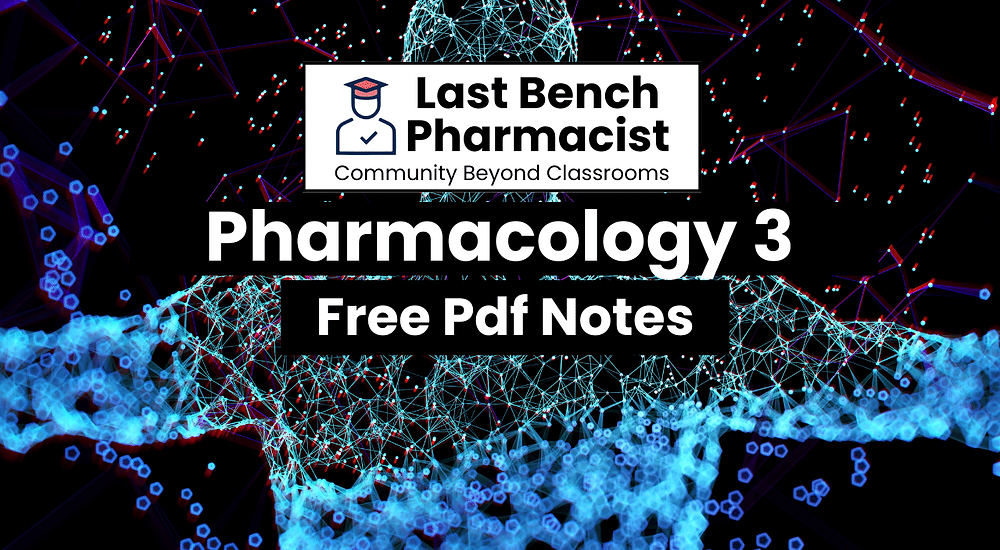



#bpharmnotes #bpharmpharmacology3pdfnotes #bpharmpdfnotes
Last Bench Pharmacists!, listen up! Ditch the instant noodles and grab your metaphorical cup of joe because B Pharm Pharmacology 3 Pdf Notes is about to take you on a wild ride through the body’s chemical messengers. Think of it as an epic music festival where hormones rock the stage, neurotransmitters bring the beats, and paracrines get the party poppin’. We’ll be deciphering the secret language of these chemical communicators, understanding how they influence everything from your mood to your memories, and learning how to manipulate them (ethically, of course!) with a pharmacy-sized toolbox of drugs. So grab your lab coat (or at least a t-shirt that says “I speak fluent chemical,”), crank up your curiosity, and prepare to rock the pharmacology casbah! Just remember, with great knowledge comes great responsibility (like knowing when to say “no” to that sketchy supplement your friend keeps raving about). Buckle up, future chemical conductors, this unit is gonna be a symphony of knowledge and intrigue!
Scope:
This subject is intended to impart the fundamental knowledge on various aspects (classification, mechanism of action, therapeutic effects, clinical uses, side effects and contraindications) of drugs acting on respiratory and gastrointestinal system, infectious diseases, immuno-pharmacology and in addition,emphasis on the principles of toxicology and chronopharmacology.
Objectives: Upon completion of the subject student shall be able to
Understand the mechanism of drug action and its relevance in the treatment of different infectious diseases
Comprehend the principles of toxicology and treatment of various poisoningsand
Appreciate correlation of pharmacology with related medical sciences.
1. Pharmacology of drugs acting on Respiratory system
Anti -asthmatic drugs
Drugs used in the management of COPD
Expectorants and antitussives
Nasal decongestants
Respiratory stimulants
2. Pharmacology of drugs acting on the Gastrointestinal Tract
Antiulcer agents.
Drugs for constipation and diarrhoea.
Appetite stimulants and suppressants.
Digestants and carminatives.
Emetics and anti-emetics.
Chemotherapy
General principles of chemotherapy.
Sulfonamides and cotrimoxazole.
Antibiotics- Penicillins, cephalosporins, chloramphenicol, macrolides, quinolones and fluoroquinolins, tetracycline and aminoglycosides
Chemotherapy
Antitubercular agents
Antileprotic agents 131
Antifungal agents
Antiviral drugs
Anthelmintic
Antimalarial drugs
Antiamoebic agents
Chemotherapy
Urinary tract infections and sexually transmitted diseases.
Chemotherapy of malignancy.
Immunopharmacology
Immunostimulants
Immunosuppressant
Protein drugs, monoclonal antibodies, target drugs to antigen, biosimilars
Principles of toxicology
Definition and basic knowledge of acute, subacute and chronic toxicity.
Definition and basic knowledge of genotoxicity, carcinogenicity, teratogenicity and mutagenicity
General principles of treatment of poisoning
Clinical symptoms and management of barbiturates, morphine, organophosphosphorus compound and lead, mercury and arsenic poisoning.
Chronopharmacology
Definition of rhythm and cycles.
Biological clock and their significance leading to chronotherapy.